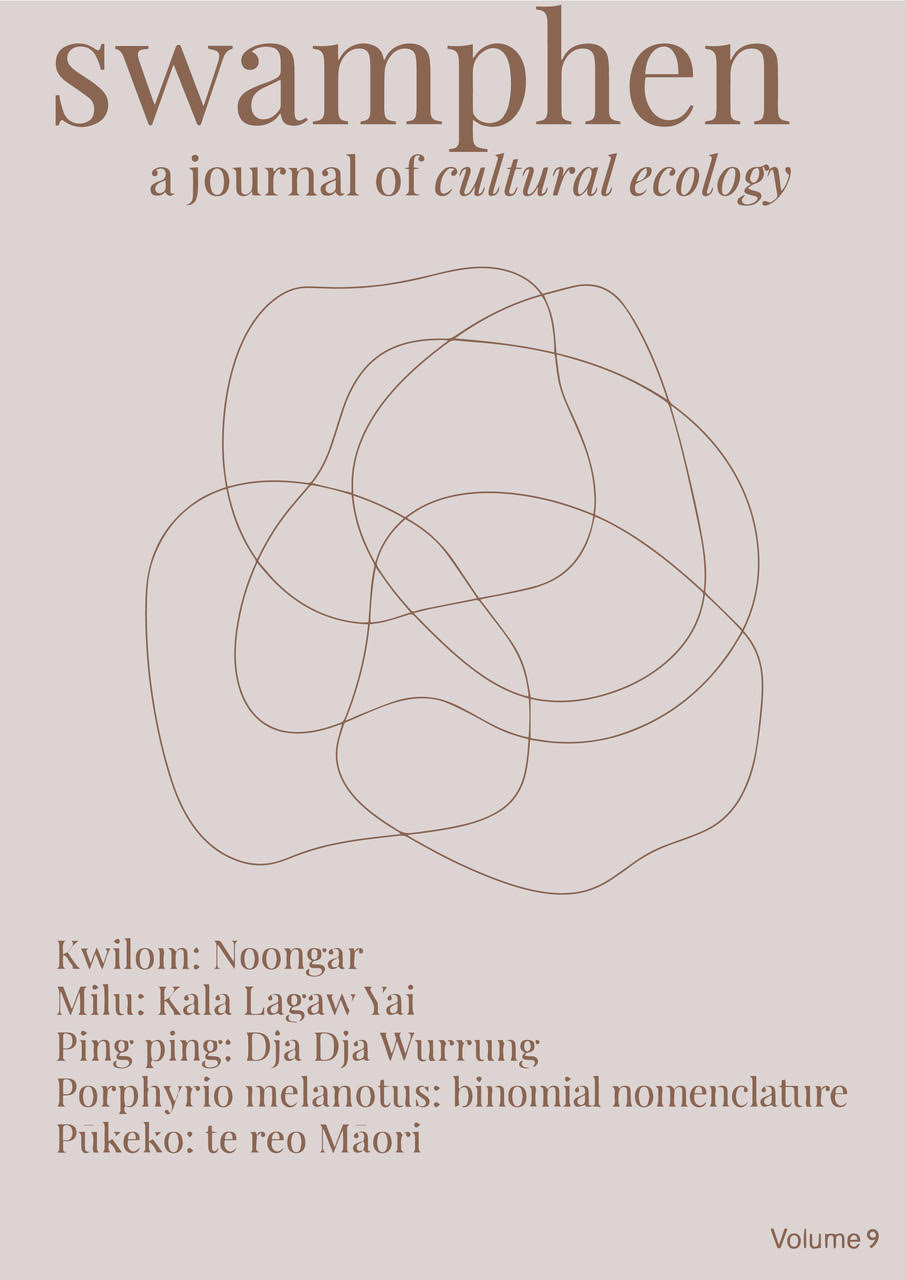Resisting Action
Slow Response and Care-Full Movement in a Post-Fire Terrain
DOI:
https://doi.org/10.60162/swamphen.9.17535Keywords:
fire, attunement, home, multispeciesAbstract
Initially I stood at a threshold peering into a place of momentous ending. I shook my head. Gundungurra country needs to burn, I imagine its people say across time, just not like this. There is a requirement for care-full in/action when living with and on a post-fire terrain while still in trauma. It is a difficult balancing act for humans who like to fix things. Beyond the domestic clean-up of burnt buildings and infrastructure, my teachers await my attention. They are not of the human kind, rather they are the critters that perch in branches or skitter under rock. They are the soil movers, the crevice crouchers and the mark makers. They are the stirring plants and the underground tendrils of fungal hyphae. They send slow signals and resist tidy aesthetics. They challenge the perception of “dead” and question short-term human economies of usefulness. Ultimately, they remind me that home is made up of many intersecting homes weaving, twisting and turning in a constant process of becoming.
Downloads
Published
Issue
Section
License
Authors who publish with this journal agree to the following terms:- Authors retain copyright and grant the journal right of first publication with the work simultaneously licensed under a Creative Commons Attribution License that allows others to share the work with an acknowledgement of the work's authorship and initial publication in this journal.
- Authors are able to enter into separate, additional contractual arrangements for the non-exclusive distribution of the journal's published version of the work (e.g., post it to an institutional repository or publish it in a book), with an acknowledgement of its initial publication in this journal.
- Authors are permitted and encouraged to post their work online (e.g., in institutional repositories or on their website) prior to and during the submission process, as it can lead to productive exchanges, as well as earlier and greater citation of published work (See The Effect of Open Access).

